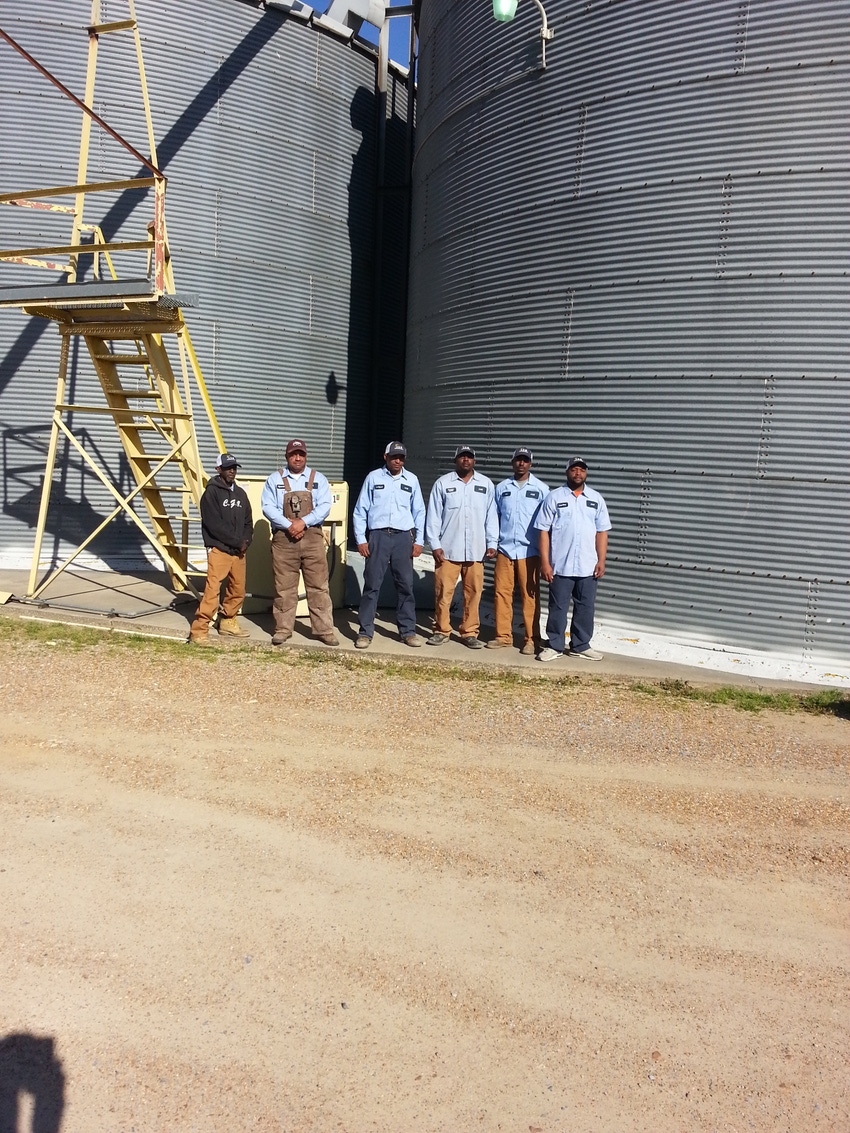
Farmers are well aware that once a crop is successfully grown and harvested the season is hardly finished. That harvested crop has to go somewhere -- and the farther it must be hauled, the lighter the billfold at the end of the day.
With the announced closure of several area elevators, that was the dilemma facing a group of west-central Mississippi producers in 2012.
“Think about what was being lost,” says Jim Daven. “Besides the farmers, you had 30 employee families that would have been terribly harmed. You had two Delta counties -- Coahoma and Tallahatchie -- that would lose major tax revenues. And what about those supplying electricity and fuel and all the rest? We had an obligation if we could revive the facilities -- at least we had to try to do it.
“Thank God it’s worked.”
Daven, an Arkansan based in Little Rock, now spends an inordinate amount of time on the road between his home and west Mississippi. A licensed broker/dealer and CBOT grain trader for 30 years, Daven’s earlier exposure to agriculture in Arkansas, Louisiana, Mississippi and Texas is what led him to the facilities he’s now helping to run in Mississippi.
“I used to do all their hedging. Actually, Dr. James Smith -- a very well-known gentleman in Mid-South agriculture, who started out in Extension -- was once strictly involved in rice. When they had the turmoil at Uncle Ben’s he wanted us to set him up in the grain business where he could buy and sell any grain. That’s how I came to know all the people in Mississippi.
“When that closed down in 2012, the area farmers, employees and communities were very concerned. So, a group of local businessmen consisting of Pete Willingham, Chance Robinson, Shelley Smith, and myself got together and formed Commercial Grain.
“When things shut down, we began meeting with farmers. They had no other place to go if they didn’t want to haul 30-plus miles along with waiting four or five hours in line for grain delivery. That would have cost them 30 cents per bushel extra -- something they’d not had to deal with before.”
Commercial Grain Marketing, LLC, expanded the facilities and started the operation back up. “We purchased the Minter City, Miss., elevator and, eight months later, ended up taking over Delta Rice Services in Webb, Miss. That alone puts us at 5 million (bushels) capacity on the grain end.”
They also purchased land in Webb adjacent to a railroad. “That side of the business is what we’re in the process of making viable. We’re taking bids and trying to secure financial resources, grants, to get that done. Coahoma and Tallahatchie County officials are helping us with that. The counties really pushed for us to take the businesses over and are keen to get that rail facility. Everything is dependent on our feasibility study which should be completed soon and hopefully we can proceed from there.”
With the purchasing of the elevators under Commercial Grain Marketing, “we essentially helped maintain the commerce in two counties and became a major employer in Tallahatchie County. Right now, we have about 30 employees and should bring in 10 to 15 more once the rail system is up. We plan to have that completed within the year.”
The businessmen aim to concentrate on domestic use of the rail loading facility. “Our customer base includes the poultry business in Mississippi and we do business in other states. The rail will open up tremendous possibilities in new markets.”
This approach, says Daven, will provide farmers with “great” alternatives.
Future plans
In Webb, where things are centralized, it’s a fair distance from the river. Farmers don’t have much alternative than to truck their grain to the river facilities. With the re-opened elevators, “they can move to a different sector and markets. Whatever is best for their bottom lines.”
What about expanding silo capacity?
“The Webb facility alone has a capacity of around 4 million. I believe that’s one the largest independent facility in the state. Along with that, the Minter City facility has a capacity of 400,000. The purchase of the Minter City elevator gave us the ability to service more counties including being closer to our end users.
“If the operation is run correctly, you’d turn that over twice. That’s a potential for a lot of business in the area.”
Any learning curve associated with the facilities was not terribly jolting, says Daven. “We were largely able to just hit the ground running. All four of the owners were well acquainted with the farmers who obtained services from Delta. We already had a customer base.
“So, we had a good base already in place. The demand was there.”
This year, Daven expect the facilities to be at 100 percent capacity.
“When we took the business over, the expertise was already in place.
“Two of the partners, Shelley Smith and Pete Willingham, were involved in the operation for many years . They already knew the facility -- the history, the maintenance needs, etc. There weren’t any big surprises so we were lucky.”
Producers haul grain in all the way from Yazoo City. “We have customers in Cleveland to Batesville, all of Tallahatchie County, some of Leflore and Coahoma counties.”
What will it take to get the rail facility up to speed?
“We have a small trucking fleet that has been moved to the old elevator. Our current plans are to expand the trucking fleet to accommodate the customer demand. That should be completed by July of 2014.
“We’re going to put in two 50,000-gallon holding tanks. Those will be used strictly for loading 25 railcars at a time. There will be a dump and scales.”
The primary focus currently, says Daven, “is to alleviate long waiting lines and offer our customers the best available prices for their products. If those two objectives are met, then we will have done our job.”
About the Author(s)
You May Also Like




